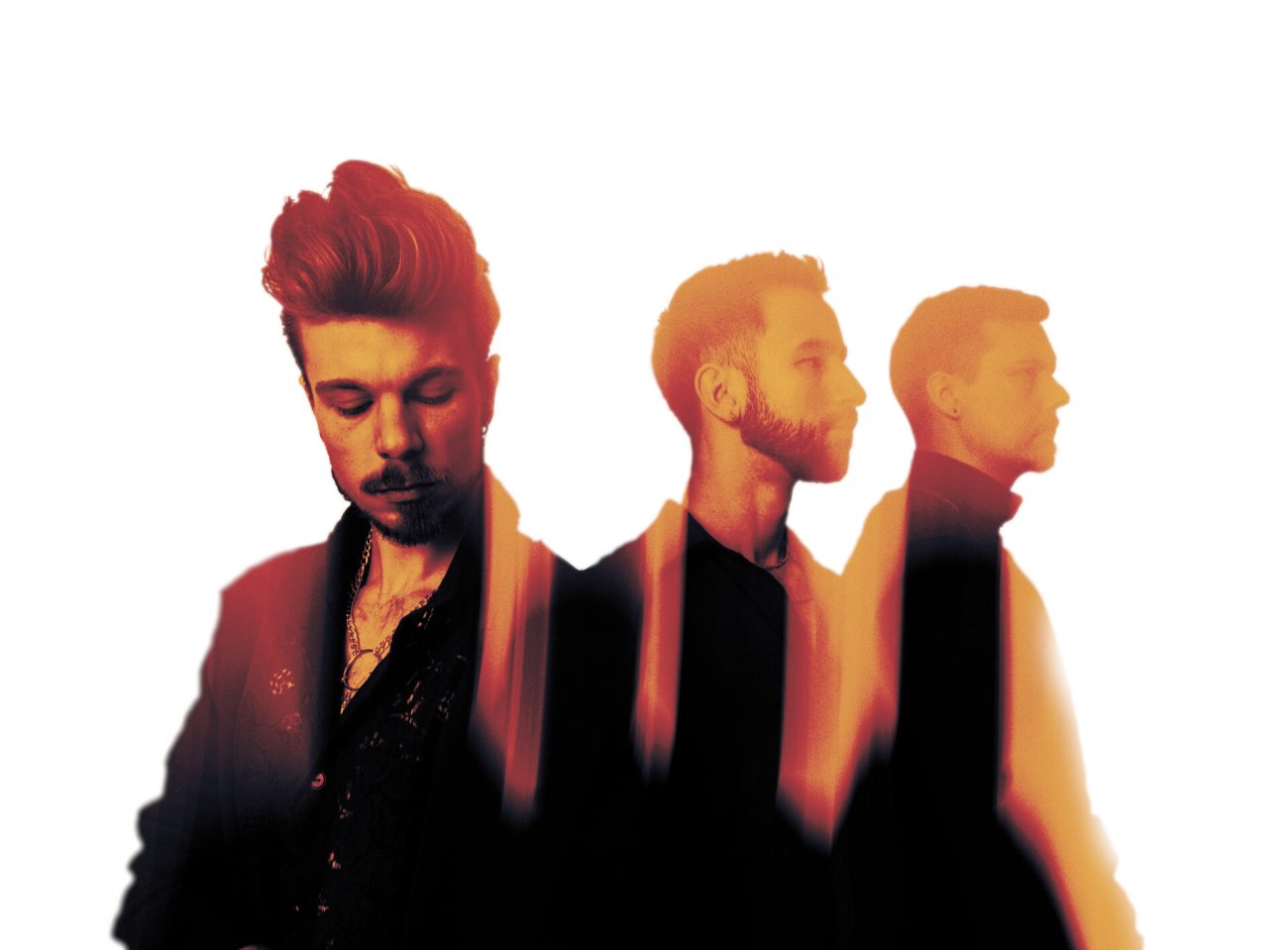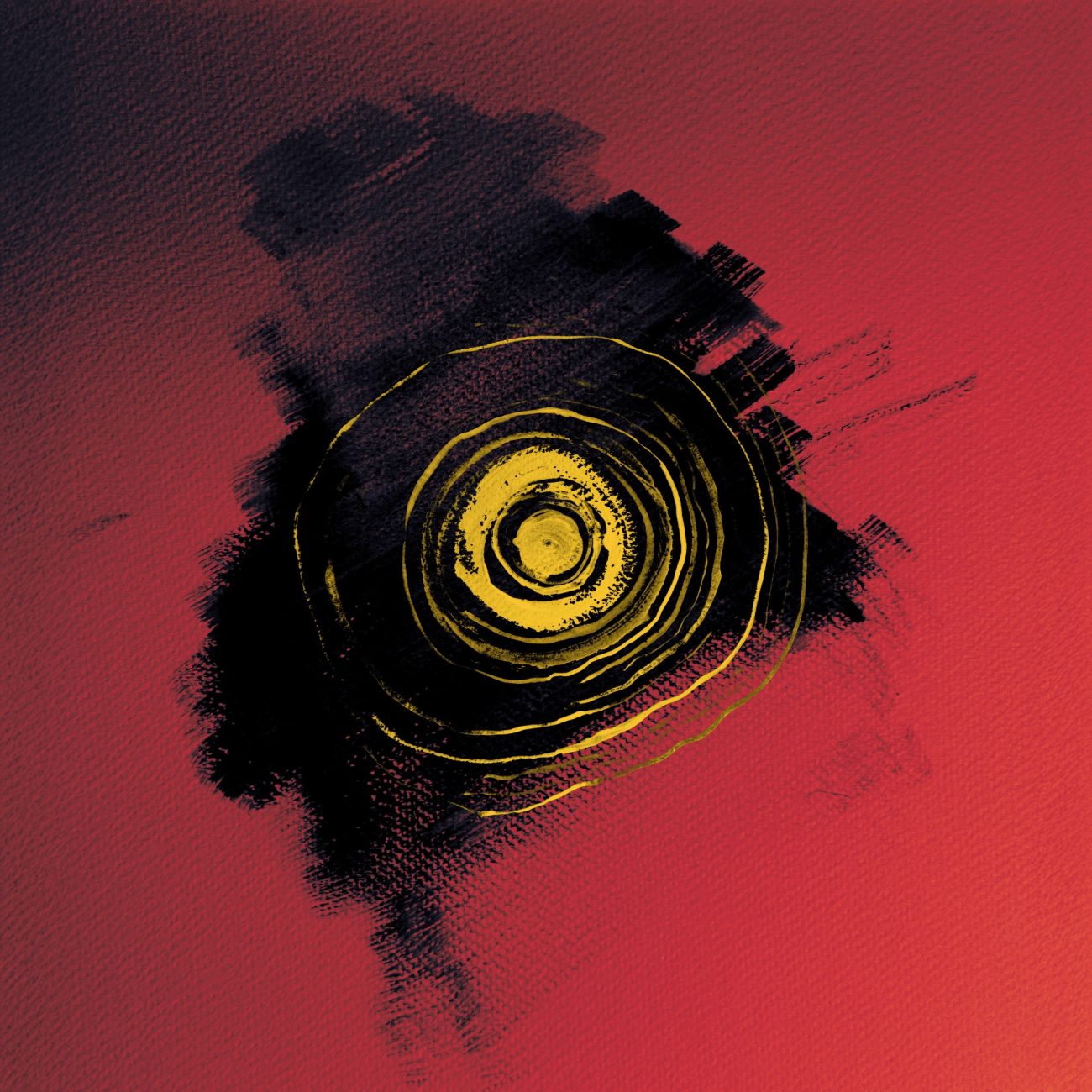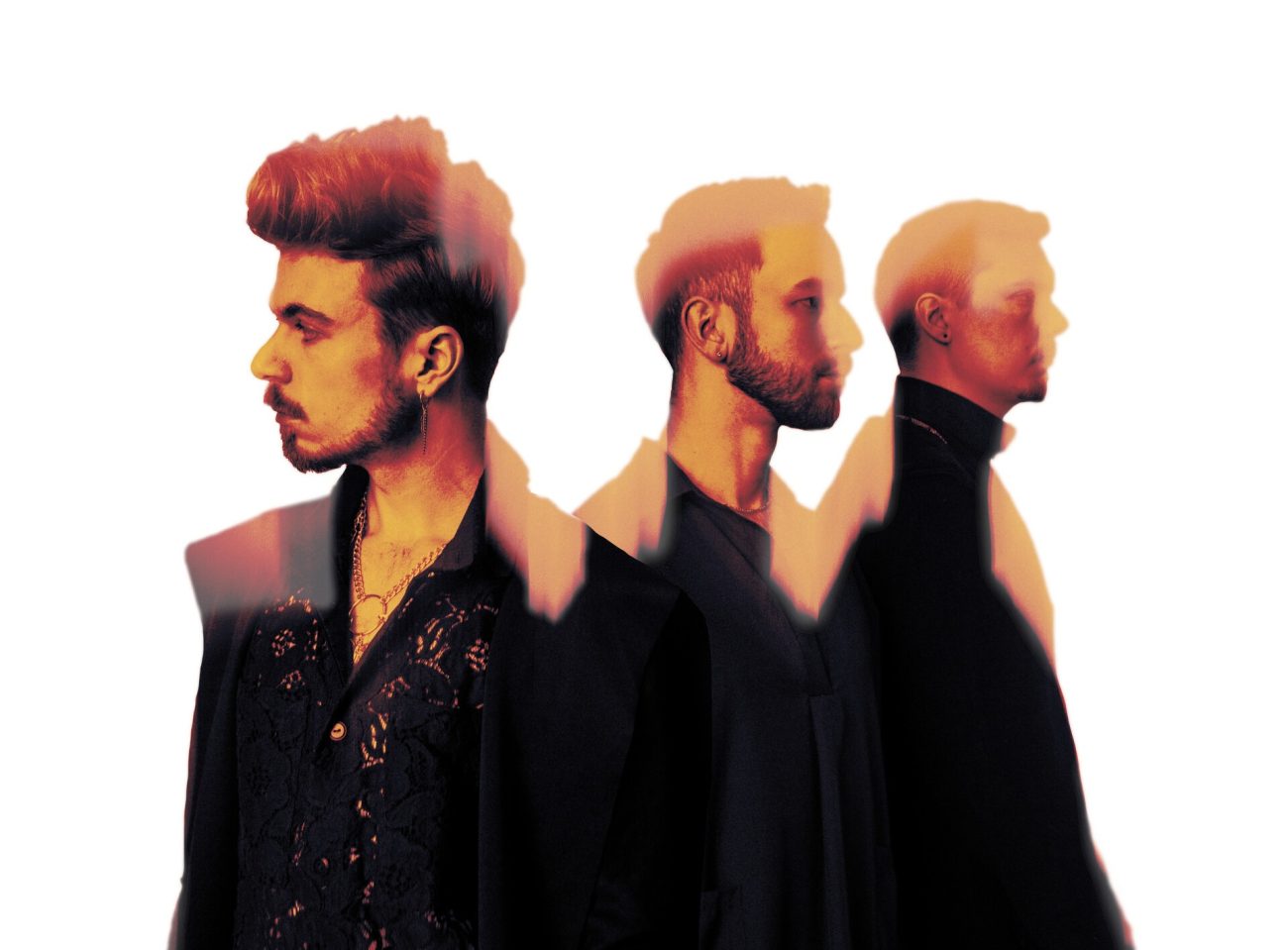The land of a thousand lakes is internationally known for heavy metal and its subgenres, so it’s easy to relate symphonic metal to Nightwish, death metal to Children of Bodom and even the “unique” love metal to HIM, and from now on, Finnish prog metal has found a strong competitor to be the one to carry its flag with Royal Sorrow.
Formerly known as Edge of Haze, the group from Helsinki rebranded themselves, signed a record deal with a big record label and together started a new chapter of their lives, creating a modern sound with their own references, feelings and the friendship of decades. On September 25th, Innerdeeps, the band’s debut will be released via Inside Out Music and in October they’ll be going on their first ever European tour, supporting Leprous. Chaoszine has been following their career closely and recently we had the pleasure of meeting vocalist/guitarist Markus Hentunen during a break just before the record release and the start of tour. It was a pleasant chat about the band’s current moment, lyrics and visual arts.

When Edge of Haze became Royal Sorrow, you guys had years of musical and personal experiences. In this new chapter, what positive things would you like to keep from the past and what mistakes would you not like to repeat as a band?
Markus Hentunen: That’s an awesome question, because I think we really took starting Royal Sorrow as an opportunity to review those kind of things, right? What do we like? What do we not like? I think one of the biggest things is to not overthink it at the same time.
When we started thinking about “okay, now this is a new band and we start from scratch”, we’re kind of experimenting, “are we supposed to now change our style to be more fitting into a pop mold or something like that, or be radio playable or stuff like that?”. I think we overthought it at that point and our label was super awesome in keeping us grounded: “Hey guys, just don’t worry about it and keep exploring and it’s going to be fine and go even crazier and whatever you do, at least don’t try to think what other people will want you to do”. And I think finding that balance and kind of retaining it from the Edge of Haze times, that’s a key thing. At the same time, I feel like if that’s one thing we want to keep, another opportunity was to start thinking more vocal driven songs, and lyrics and top line driven songs.
It’s been a really cool process in the sense that a lot of the times in the past, the songs were “hey, here’s a cool riff and here are some cool chords”. And at the last point it’s like: “okay, and then I guess we have to sing on top of this as well, right?”. Here, I think the songs are a lot more. A vocal idea comes first, or maybe even a topic for the song or a theme. And then even at those late points we’re like “we should change these guitars because they support the vocal a lot better”. So we changed how we valued those kinds of different things. I feel like being vocal driven is now a key thing for us that we didn’t have in the past.
One of the most important elements of all the material released so far is the visuals, which you’re involved in. The music videos are incredible, the album and single covers, and even the promotional photos carry the band’s core. How important is it to have these graphic elements connected to the music?
Markus Hentunen: That’s an awesome thing to cover! As long as I can remember, we’ve been really visual about our art. We’re huge movie nerds and like all sorts of visual things. So it comes to us really naturally to start envisioning different types of elements as soon as there’s some form of art that we have. A lot of times, there’s a demo and we already start seeing the music video in our head. And oftentimes those visions even align. People have different color palettes in their minds already, so it’s such an integral part that it feels like it’s just a natural continuation of it. In the past, maybe we didn’t have enough resources to go into that as heavily as possible.
Of course, it’s a lot of learning to do it on your own, and we love to do it still. It’s awesome to have the vision in your head and then bring it to life, but at the same time now it’s so great to be able to involve a lot more people that share the same visions with us. We’re so happy to basically make it more whole.
I can hear in Royal Sorrow’s music influences beyond heavy metal. Some of you guys work as session musicians with some pop artists here in Finland, so how has this experience of playing with other musicians and genres made you a better musician when creating something different?
Markus Hentunen: That’s a huge part over the last years for us. If I speak from personal experience, I started getting into playing music specifically through metal/rock and guitar was my instrument. While that can motivate you and you find those elements that bring a spark inside you, you have to find that a lot of times. That’s not the whole story when it comes to songwriting. Especially when you’re trying to write a song you have to think about the whole picture. So you’re not like, “if you just concentrate on how awesome I can play the specific part”, that’s a whole different thing.
And being involved in those different kind of situations where you’re not supposed to be the rock star, at that point you’re supposed to learn how you can serve the song the best. That’s been so important. The cool part is, I don’t think it’s even that genre dependent. So it’s the same things whether you’re doing a ballad or a disco thing or a pop electronic thing. A lot of the underlying themes, if you try to do it well enough and serve the song, are still the same. I feel like once you start learning and, I don’t know, internalizing those things, it doesn’t matter where it came from specifically, but you can find help in making your own product better in that sense.

When we talk about prog metal, often the instrumental is the main topic, but the lyrics also play an important role, especially in the band’s message. There’s a lot of poetry and positivity within the melancholy of Royal’s lyrics, so how therapeutic has it been to transform these feelings into lyrics?
Markus Hentunen: I think therapeutic is an awesome word for that. Because the core three of us all write, and basically depending on whose original demo or original idea it was, maybe they’re the person to bring forth a topic that they’d be interested to cover. And I’d say almost always we find common feelings about it. There are often topics that us three have thought about individually. So lyric writing sessions definitely become therapy sessions in that regard. There are a lot of things where we’re not even trying to start to write and put down text. We’re actually throwing around ideas and trying to voice our thoughts and make some sense into it.
A lot of times when you’re thinking of an end product, it doesn’t become too serious. It’s still, “yeah, we’re making a song”, but actually you’re exploring the deepest parts of you. It takes a lot of time and effort. It’s really, really heavy sometimes or really hard. There have been days where we’re spending an entire day at the studio. Maybe we get one sentence out of it, but on the grand scheme, it’s like we uncovered something deeper. The connection between us three and our connection to the art deepens so much that in the future and in the following sessions, it helps us a lot. So as songwriters and as friends, it’s awesome to be able to cover these things.
Talking about being friends, the band has a cool story about you being childhood friends. In a few days, the band’s debut will be released on an international label, and in a month, you’ll start a European tour with Leprous. At this important moment in your lives, how special is it to cherish these experiences alongside those who have been there since it was all just a dream?
Markus Hentunen: It’s so important and I think we’re really ready to embrace it because, of course, we’ve been talking about hypothetical European tours for as long as we’ve done music together. So being able to share those moments with each other, I think helps you realize that it’s actually happening.
So a lot of the times in your life, if you have personal achievements, you’re always like, “okay, cool, let’s move forward and let’s get to the next thing”. I think enough times in this process, especially this year, we’ve specifically stopped and been like, “hey, let’s actually cherish this moment and talk about how cool it is”. It humbles you at the same time, but also I feel it builds a nice basis for the future, like a core feeling of “OK, we’re actually climbing on top of this hill and making progress on the way”. It motivates you.

And sometimes this realization comes on the stage when you look at each other and say “Hey, the audience is singing our songs”.
Markus Hentunen: Yeah, exactly! Especially with this kind of music where we’re locked in our studio and you don’t see the fans anywhere outside of playing live, because everything happens on the Internet or whatever, so you often forget it, or it doesn’t seem real when somebody comments something.
In those moments I try to stop as well and actually internalize. If I see we have touched somebody and maybe helped somebody uncover some feelings or go through something, it’s so cool. That’s actually a real person, even though I might not see it now. When you actually see people singing it back to you live, that’s when it comes alive.
As mentioned, you will soon be performing in different countries and spreading your art even more, but with the single releases so far, what has the fan reaction been like? What’s it like receiving this feedback from so many different corners of the world?
Markus Hentunen: It has been super rewarding, I’d say. We’re making music for ourselves first and foremost, we’re not trying to think too much about what anybody cares. So the expectations are kind of really low. We’re super happy about it no matter what happens, and when we start receiving positive feedback, it becomes so much better.
And the cool thing has been to see how each song seems to be somebody’s favorite song at this point. So having explored so many different aspects, it is immediately rewarded at that point, instead of finding one cool thing that has an audience and then trying to replicate that over and over again. It feels like any time we do a new thing, somebody likes it more than anything else we’ve done so far. So that’s one of the cooler parts about it. Definitely!
Thank you very much for taking the time to talk with us!
Markus Hentunen: Thanks so much! It was awesome!
Words by John Wins
Photos by Jussi Ratilainen
You can listen to Royal Sorrow‘s debut album “Innerdeeps” here: